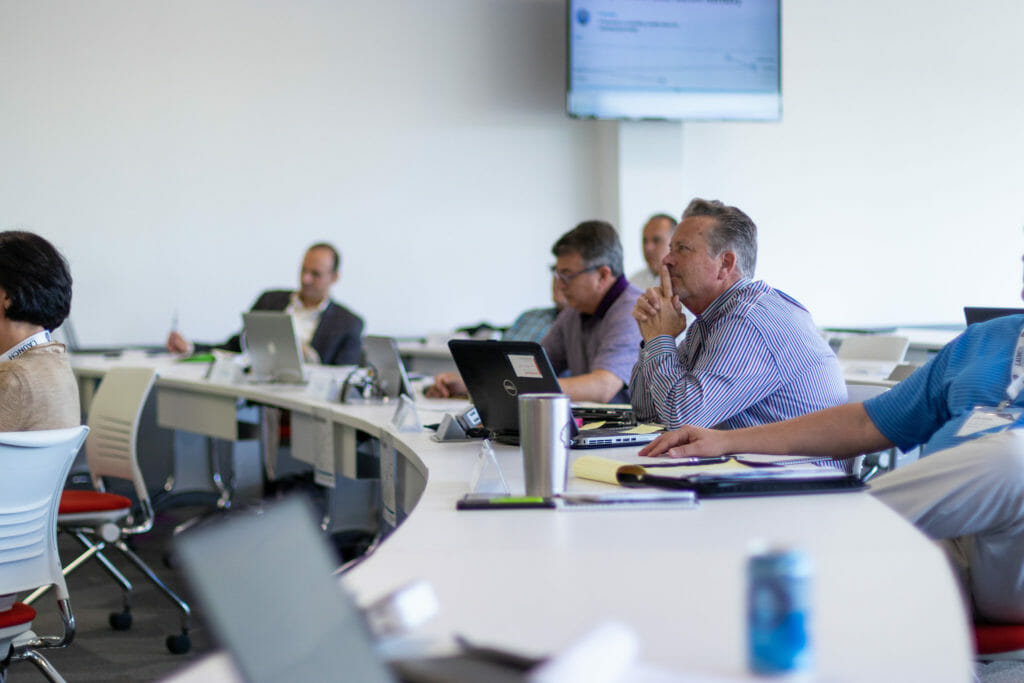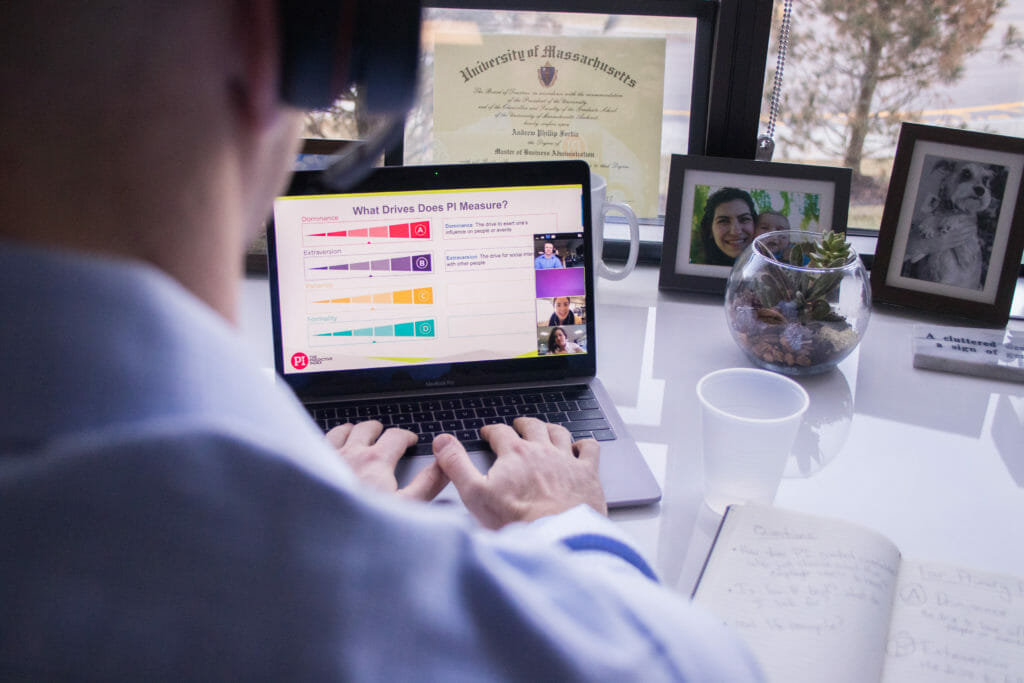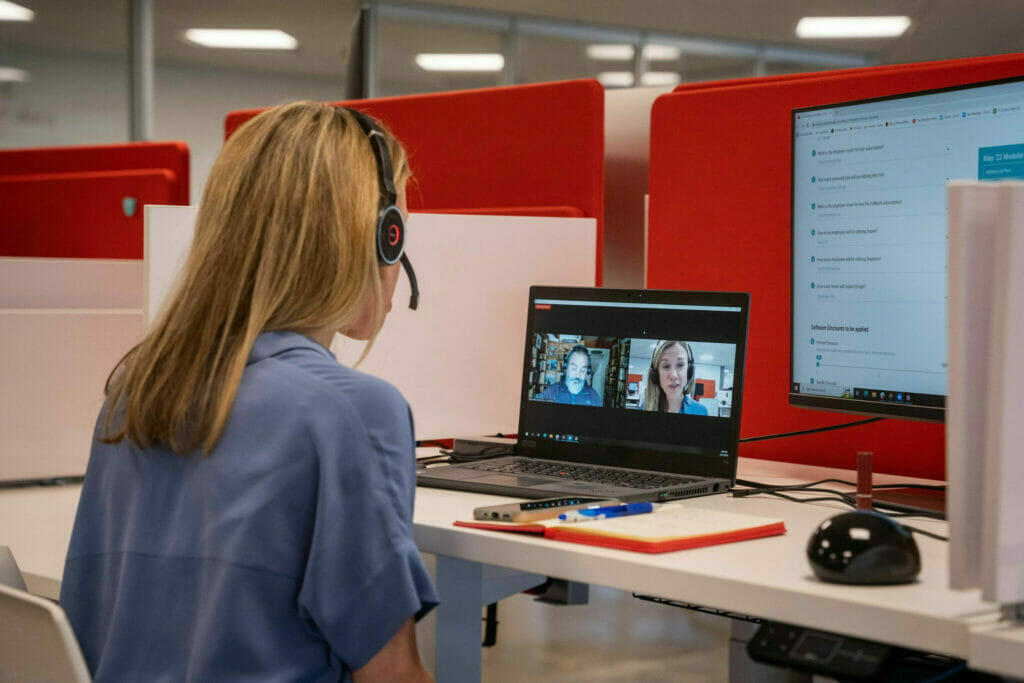Who do you show up as at work? Does it depend in part on where you work?
Those questions—and many others—are core to the hybrid work-era conundrum with which many companies are still wrestling.
A recent New York Times piece, penned by Emma Goldberg, explored the role personality and behavioral assessments ought to play in these strategies. It’s an increasingly pertinent discussion, as organizations evolve and codify their return-to-office strategies.
The decisions these companies make are mostly impacting their people. So it’s only fair that they consider the behavioral preferences of those people as they develop these strategies.
Of course, those considerations surface a lot of other questions. In this piece, we’ll consider:
- What’s the role of assessments in return-to-office strategies?
- What’s their professional development potential?
- Is there risk in administering multiple assessments?
- What’s the employer’s responsibility in reconciling results?
- Can assessments support DEI efforts in hiring and team building?
- Do personality tests ultimately enable better decision making?
What’s the role of assessments in return-to-office strategies?
If a company is in the position to do so, they should absolutely weigh behavioral information as part of their return-to-office calculus.
COVID challenged how we approach work as a society in many ways. It helped many of us re-prioritize health (both mental and physical), it drew attention to how much time we should dedicate to our families, and it forced us to really process the pros and cons of working from home versus working on-site. Everything we’ve learned—and continue to learn—should inform a company’s workforce distribution.
Consider the following:
- A lot of people noticed how much time they got back by not having to commute to work. Others gained a massive sense of autonomy and flexibility that has enabled them to prioritize both work and non-work responsibilities and passions.
- Some people miss the energy and social interaction that come from working on-site. They don’t have as many opportunities to chat, brainstorm, or explore wild ideas with colleagues.
- For others, working from home resulted in a sense of loneliness, detachment, and isolation—feelings that can have serious consequences for well-being.
- We’ve also found that different behavioral preferences have specific likes and dislikes of both remote and in-office work.
Many companies are in a unique and opportune position when it comes to developing a return-to-office strategy, and it’s important that these organizations properly weigh all the information they have to inform that strategy.
Even if a company is in a position where they aren’t able to prioritize employee preferences, managers can still use assessments to gain insight of these preferences and help make transitions easier, whether the company is returning to the office or staying remote, and regardless of the company’s strategy.

What about professional development potential?
Personality tests can definitely be a useful tool for career development. First, personality tests (regardless of what an individual thinks about them in general, or how they feel about their individual results) start conversations. Many of these conversations likely wouldn’t have happened had the assessment not been administered.
Gaining insight on how we behave at work, or why we enjoy certain types of activities, is an incredibly useful self-awareness exercise. Simply going through the motions—taking the assessment, reading through results, and talking about those results with a manager or peer—can help someone learn about themselves. It also provides information to the manager (both through the output of the assessment and resulting conversation) about that individual’s workstyles.
All of this, together, can improve that person’s day to day and enhance their overall work experience.
Further, processing the results of an assessment in a growth conversation with one’s manager can help identify areas of opportunity. Are they finding that their role requires them to work independently, but that they prefer to talk things through with others?
This conversation will allow the employee and manager to identify ways to collaborate more, or strategies the employee can use when they’re feeling out of the loop.
Finally, managers can use results from a personality assessment to better understand how an employee might prefer to be developed. They can answer questions like:
- How do they like to receive feedback and recognition?
- Do they need more specific goals?
- Or do they just need a big-picture vision?
Understanding these preferences can help smooth out relationships and communication when it comes to career development.
Is there risk in administering multiple assessments?
Any organization that isn’t at least paying attention to—if not optimizing—the candidate experience, is doing their hiring process a disservice. Candidate perceptions are incredibly important, because they can influence: an individual’s attitude towards the company; the likelihood of their accepting a job offer; how likely they would be to apply to a different role within the company; and how they communicate to others about the company.
That being said, it’s definitely important to consider how candidates may react to various types of assessments. A few important considerations, because of their associated risks, include:
- How long will it take to complete all of the assessments? Survey fatigue is real, and even if a candidate is willing to complete an hours-long application process, this process may incur some negative reactions. It can be incredibly discouraging to spend a significant amount of time applying to a role, providing thoughtful answers, just to be rejected.
- Do the assessments measure different things? Will the candidate feel like they’re answering the same questions over and over again? The NYT piece notes that many work-related personality assessments measure the so-called Big Five. Many assessments indeed measure the same things in different ways. If a hiring team is going to administer multiple assessments, it’s no use to them or to the candidate to measure the same construct.
- Does the candidate understand what the assessments are measuring? Research has shown that many negative reactions to hiring assessments occur because candidates don’t understand if and how they’re work-related. It’s not immediately apparent to people why your answer to “I get chores done right away” is relevant for work, even though that question measures conscientiousness, which is closely related to job performance.
It’s important to communicate the “why” behind administering assessments, and to explain what kind of information they provide to the hiring team. This helps the candidate sees the value in responding thoughtfully.
Many of the same considerations still apply when administering multiple assessments to current employees. The utility needs to be very clear. Depending on the assessment, and depending on the organizational culture or climate, it can be intimidating or stress-inducing to respond to a seemingly random assessment. If an employee doesn’t know why you’re administering an assessment, and how you’re going to use the results, it could very easily engender suspicion and mistrust.

What’s the employer’s responsibility in reconciling results?
It’s an employer’s responsibility to collect objective, unbiased, and work-relevant information about candidates prior to making a hiring decision. As a baseline, personality assessments need to demonstrate:
- Reliability (they are consistent in their measurement of personality)
- Validity (they measure what they’re supposed to measure)
- Fairness (individuals with differing demographics do not experience the assessment differently or score differently)
Assessments that achieve these criteria have shown to be valid predictors of job performance. So have structured interviews, cognitive assessments, and integrity tests. However, just like an employer would never make a snap hiring decision by solely looking at a resume, they shouldn’t solely rely on personality assessments for those decisions.
Personality assessments are an additional objective data point to help inform hiring decisions. They should help probe for a candidate’s potential strengths and caution areas.
For example, if a candidate’s level of detail orientation may be lower than what is required for the role. But they may still be able to describe a project they worked on that required a great level of detail. If so, they will likely be able to stretch that behavior for this role.
Ultimately, employers should be using personality assessments as a singular data point among all the other criteria they consider. And further, they shouldn’t reject an otherwise-qualified candidate solely based on personality results.
Can assessments support DEI efforts in hiring and team building?
Assessments that exhibit strong fairness statistics (i.e., minimal statistical bias) serve as useful data points in the hiring process. They can even help mitigate unconscious bias inherent in other traditional hiring practices, like resume reviews.
Maintaining a fair and equitable hiring strategy is all about limiting the bias that can seep into the hiring process. So it’s incredibly useful to collect objective criteria, such as personality assessments, to help inform hiring decisions.
However, it’s crucial to remember that bias doesn’t only come from the tools employers use for hiring—it can arise through how those tools are used and implemented, as well. For that reason, organizations must remember that simply using a fair assessment does not necessarily mean that the whole hiring process will be fair. Beyond their choice of assessment, they also need to be strong stewards of implementing equitable hiring, interviewing, and decision making practices.

Ultimately, do personality tests enable better decision making?
One passage from Goldberg’s piece stands out, because it acknowledges the abstractions personality tests can’t account for, and which are amplified by remote and hybrid work:
“Acolytes of personality testing are cautious, though, about how results should be used for workplace decision-making. They should be one factor among many, advocates say, with the understanding that there’s a gap between the way people present themselves on a test and how they’ll act on any given Tuesday, or in a fight on Slack.”
It’s never a bad idea for businesses to exercise a healthy amount of caution with any sort of decision making! And that’s especially true when those decisions are potentially higher-stakes, carrying real people consequences.
Workplace decision-making encompasses a lot. One hour, you might be deciding on a goal for an individual or a team. The next, you’re deciding which candidate to hire from a pool of highly qualified individuals.
Those kinds of decisions can have very real, tangible effects on a person’s income and career progression, not to mention perceptions of fairness, attitudes towards the company, and even quality of life. Because these decisions carry more weight, it would be remiss to rely on only one criterion or piece of information.
No single assessment is perfect. It’s impossible for any assessment to capture 100% of the content domain for personality. Nor can a single assessment perfectly predict 100% of a person’s behavior, 100% of the time.
Like Ben Dattner aptly states in this article: “Human behavior is complex, people are complex, situations are complex.” Our behavior often depends on a multitude of contextual factors or cues—what setting you’re in, the people you’re around, your mood, what you experienced earlier that day—and personality assessments don’t necessarily take all these factors into account.
Personality assessments provide a very useful data point, and can help drive important conversations or identify areas for growth. But it’s possible to hire a candidate whose personality perfectly matches a role, only to have them perform poorly.
Conversely, it’s possible to hire a candidate who may not meet all of the behavioral requirements for a role, but ends up being an above-and-beyond performer, because they also have the right skills and values.
All of this is not to say that we shouldn’t use personality assessments in decision making. But just like someone wouldn’t hire a candidate for their resume, no one should be basing high-stakes hiring decisions on a personality assessment.
Ultimately, personality assessments are an excellent tool in our workplace belts. They can provide an additional data point or rationale that helps guide workplace decisions.
But with great data, comes great responsibility. Companies using assessments should take care, evaluating these results alongside all the other factors—whether they inform a hire, or a hybrid work policy.








